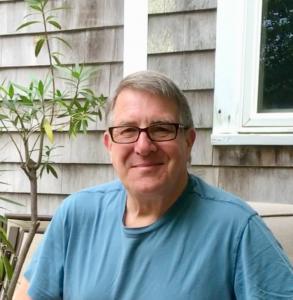Anthony Gross

Strengthening Community Resilience in America’s Oldest Seaport
In partnership with the Northeast Fisheries Science Center, these oral history recordings capture the invaluable life experiences of long-lived members of Gloucester's working waterfront, one of the oldest fishing communities in the United States.
On August 28, 2019, Molly Graham interviewed Anthony Gross for the Strengthening Community Resilience in America’s Oldest Seaport project. Born in Cincinnati, Ohio, on December 30, 1952, Gross moved to Gloucester, Massachusetts, at the age of three when his father accepted a position as general manager at Empire Fish Company. Gross's father, a butcher by trade, played a significant role in the Gloucester fishing community, serving as president of the Chamber of Commerce and chairman of the Dory Committee. The interview explores Gross's upbringing in Gloucester, where he developed a deep connection to the local fishing industry. He recounts his early work experiences at his father's fish processing plant, detailing the various roles he held, from working in the freezer to handling fish on the wharf. Gross discusses the evolution of his career, including his transition to offshore lobstering and his experiences with different fishing techniques, such as tub trawling and Scottish seining. Gross also reflects on the challenges he faced, both professionally and personally.
Please Note: The oral histories in this collection are protected by copyright and have been created for educational, research and personal use as described by the Fair Use Doctrine in the U.S. Copyright law. Please reach out Voices@noaa.gov to let us know how these interviews are being used in your research, project, exhibit, etc. The Voices staff can help provide other useful resources related to your inquiry.
The NOAA mission is to understand and predict changes in climate, weather, oceans, and coasts, to share that knowledge and information with others, and to conserve and manage coastal and marine ecosystems and resources. The Voices Oral History Archives offers public access to a wide range of accounts, including historical materials that are products of their particular times, and may contain offensive language or negative stereotypes.
Voices Oral History Archives does not verify the accuracy of materials submitted to us. The opinions expressed in the interviews are those of the interviewee only. The interviews here have been made available to the public only after the interviewer has confirmed that they have obtained consent.
